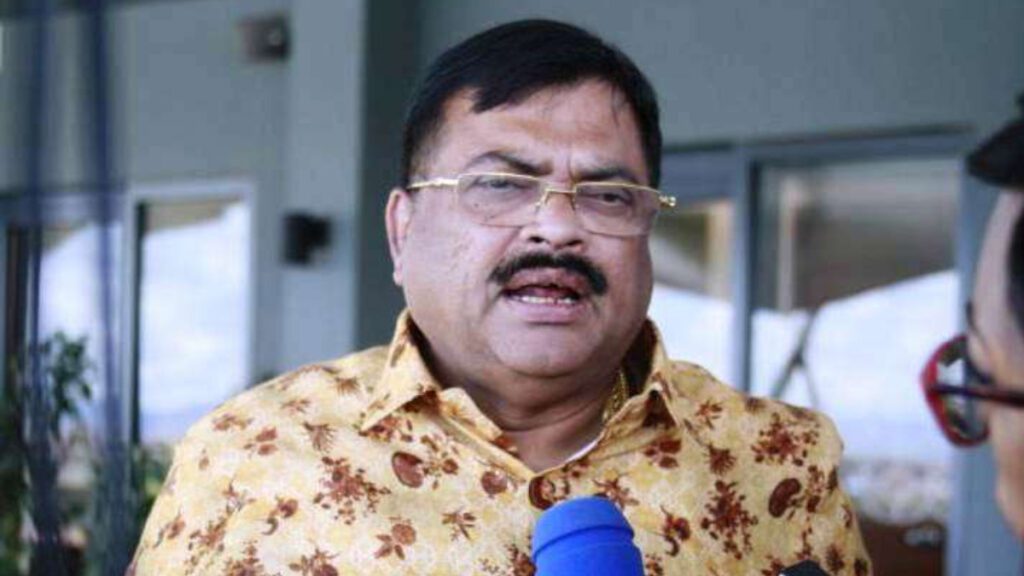The 13-member independent investigative committee appointed to probe the kidney transplant scandal at Mediheal Hospital in Eldoret has recommended immediate criminal investigations targeting the hospital’s founder, Dr Swarup Mishra, for alleged involvement in a suspected international organ trafficking ring.
In a damning 314-page report submitted to Health Cabinet Secretary Aden Duale on Tuesday, July 23, 2025, the committee exposed widespread irregularities, suggesting the presence of an elaborate organ harvesting network operating from within the facility.
Disturbing Patterns of Transplant Irregularities
The report, which documents findings from a three-month inquiry, reveals that between 2018 and March 2025, 417 kidney donors and 340 recipients were handled at the hospital. Alarmingly, 77% of donors were male, and nearly 39% had no documented nationality, raising major red flags.
Among donors of foreign nationality:
- 44% were Kenyan
- 16.8% were non-Kenyan
- 60 donors had no country of origin on file
- Countries identified included Burundi (1.54%), Ethiopia (1.10%), Congo and Germany (0.88%), and USA (0.66%)
The investigative panel, chaired by Prof Elizabeth Bukusi of KEMRI, flagged glaring inconsistencies in donor documentation, including forged or irregular signatures and dubious classifications of individuals as “mutual friends”—a label often used to bypass legal consent requirements.
Overworked Surgeons and Legal Breaches
One surgeon and an anesthesiologist reportedly handled 24 transplant cases within 14 days, an alarming volume suggesting unsafe practices and possible falsification of medical records.
The committee recommends that the following doctors face criminal investigations:
- Dr Swarup Mishra – Mediheal founder
- Dr A.S. Murthy – Nephrologist
- Dr Sananda Bag – Urologist & Transplant Surgeon
- Dr Vijay Kumar – Anesthesiologist
Dr Murthy was specifically criticised for operating in a “one-man show” model, which violates national protocols requiring a multidisciplinary transplant team.
Suspension and Broader Reforms Urged
The report recommends that Mediheal Hospital remain suspended from conducting transplant services until investigations conclude. It further calls for a probe into the Kenya Medical Practitioners and Dentists Council (KMPDC) for potential regulatory failure and complicity, citing its silence despite previous reports of misconduct.
“The report contains comprehensive findings and recommendations aimed at strengthening regulatory frameworks, enhancing transparency, and preventing malpractice in transplant services,” said CS Aden Duale.
Duale: “This Report Will Not Gather Dust”
While receiving the report, Duale assured the public of action:
“I want to assure you that the report will not find itself on the shelves. It will be implemented. I will take it to Parliament, I will take it to Cabinet. It is for the people of Kenya to read,” he said.
He confirmed that the ministry had already initiated a technical review and would move swiftly to enact the committee’s recommendations.
Legal Defense and Legislative Input
In a June 9 closed-door session, Mediheal’s management, represented by lawyer Katwa Kigen, appeared before the panel and denied wrongdoing. Kigen maintained that the hospital had submitted relevant documents and was cooperating fully.
“We have demonstrated our willingness to work with investigators. Our management is open to clarifying any issue,” said Kigen, adding that Mediheal had supported efforts to craft new transplant legislation.
Broader Reforms Ahead
Beyond calling for arrests, the report recommends ethical, procedural, and legal reforms in Kenya’s transplant system. It warns that unchecked transplant services without transparency risk turning Kenya into a hotspot for organ trafficking.
The Mediheal scandal first came to light earlier in 2025, prompting the government to form the committee through Gazette Notice No. 78 of April 23, 2025, amid mounting public outcry.


